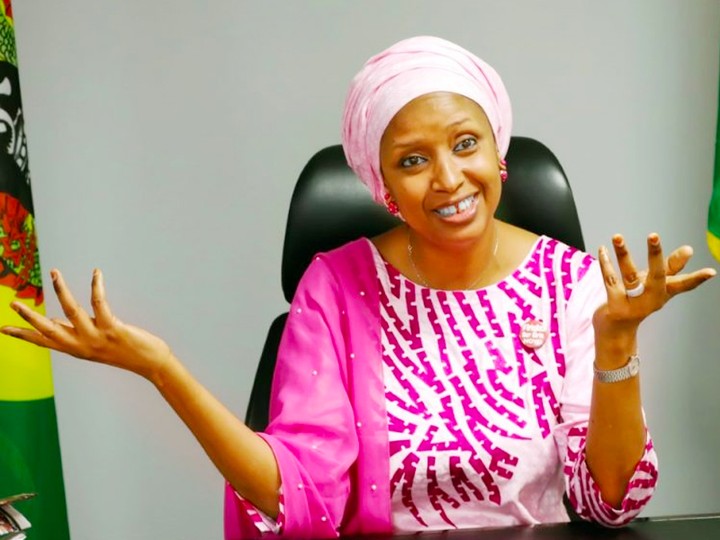There is a line between authority and autocracy, between governance and vendetta. Hadiza Bala Usman, once ensconced in the prestige of her office as Managing Director of the Nigerian Ports Authority (NPA), crossed that line with the quiet arrogance of unchecked power. Now, as she returns from political obscurity to peddle revisionist tales, BUA Group has drawn its line in return, with truth, contract, and unimpeachable fact.

This is no routine rebuttal. This is a public service. When Usman accused BUA Group and its chairman, the eminent industrialist Abdulsamad Rabiu, of breaching a concession agreement at the Port Harcourt terminal, she did more than distort the facts. She insulted the spirit of lawful enterprise. She mocked due process. She trivialised the dignity of her former office.
But BUA has responded with clarity, instead of anger. And not for vanity, but for posterity.
The Contract She Chose to Forget
In 2006, years before Hadiza Bala Usman ever walked the corridors of maritime power, BUA entered into a valid lease agreement with the NPA for Terminal B of the Rivers Port. The mandate was clear: rehabilitate, operate, and expand the terminal infrastructure.
By the time Usman assumed office in 2016, BUA had already begun discussions with the NPA to address remedial works, as the port’s original state was riddled with derelict iron ore remnants, structural deficiencies, and unsafe berths—all legacies of public neglect. These talks were nearing conclusion.
Instead of progressing those talks, she chose disruption. Rather than follow the contract’s dispute resolution mechanism, she wielded authority like a cudgel, summarily terminating BUA’s rights, decommissioning berths, and shutting down the terminal without consultation, without lawful authority, and in contempt of a standing court injunction.
By every measure of law and logic, Hadiza Bala Usman’s actions at the helm of NPA were an affront to good governance. Her decision to terminate BUA’s concession did not follow process. It was not supported by arbitration. It flouted the courts. And it trampled upon Article 17.3 of the concession agreement, which mandates exclusive resolution through arbitration.
No provision in the contract authorised her to decommission the terminal. She has yet to cite a clause. She never will. Because there isn’t one. Worse, after BUA provided indemnities and guarantees, the company was briefly permitted to resume operations, only for Usman to reverse course within three weeks and shut the terminal again, unilaterally. If this was not hostility laced with personal vendetta, then what was it?
The President Saw Through It and Acted
When Abdulsamad Rabiu, ever composed and dignified, sought an audience with then-President Muhammadu Buhari, he did not ask for favours. He brought facts. Contracts. Correspondence. Court rulings.
President Buhari, a man not known for sentiment, responded with presidential decisiveness. He directed the Attorney General of the Federation (AGF) to investigate.
The AGF invited all parties: BUA, NPA, and Ms. Usman herself. BUA showed up. She did not. The review still went ahead. And the verdict was unambiguous: Usman’s termination was unlawful. The decommissioning was without basis. The NPA under her had breached its obligations, and BUA’s rights should be reinstated.
The result? President Buhari reversed her decisions. He preserved 4,000 jobs. He saved a $500 million investment cluster in Port Harcourt. He preserved Nigeria’s credibility before its own laws. That is the truth. And Hadiza Bala Usman cannot wish it away.
Hadiza now claims President Buhari was “misinformed.” The audacity is staggering. Here is a former head of a national agency, repudiated by her principal, whose decisions were overturned based on the advice of the nation’s top legal officer—now implying that both men lacked understanding.
It is an insult, not just to Buhari, but to the office of the President.
If Hadiza Bala Usman truly believed she acted lawfully, BUA challenges her to show Nigerians the exact clause that permitted her unilateral decommissioning. Let her cite chapter and verse. Let her test her righteousness against the written word. Otherwise, the record must stand: she acted in abuse of power. She governed with impunity. And she endangered one of Nigeria’s most strategic private sector investments.







